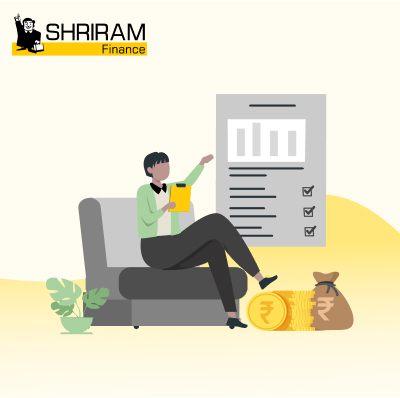Taking a personal loan can give you quick support when you need it most. But what comes after—the repayment—is just as important. A little planning can go a long way. If you keep a few simple habits in mind, you can pay off your loan without added pressure. This piece walks you through how to handle repayments in a way that works for you and keeps your finances on track.
Understanding Your Loan Terms
Before you plan how to repay your loan, take a moment to go over your loan repayment plan options carefully. Start by reading your loan papers closely. You need to know how much you’ve borrowed, what interest you’re being charged, and how long you’ll be paying it back. Look for anything extra—like fees or charges if you want to repay early. Knowing your loan details helps you decide what you can afford each month.
Types of Interest Rates
Loans usually come with two types of interest—fixed or floating.
With fixed, the rate doesn’t change, so you pay the same amount each month. It’s steady, which helps with planning.
Floating rates can change over time. If the market rate goes up, so does your EMI. It might start low, but later payments can become harder to manage. That’s something to think about if your income isn’t flexible.
Most personal loans let you repay over one to five years. A longer loan gives you smaller EMIs, but you’ll pay more interest by the end. Shorter terms mean bigger EMIs but less interest overall. Try picking something you can manage monthly, without stretching it more than necessary.
Repayment Periods
Personal loans generally offer tenures between 1 to 5 years. Longer tenures mean lower EMIs but higher total interest paid. Shorter loans have higher EMIs but reduce total interest payouts.
Choose a tenure that provides an EMI you can afford month-on-month while minimising interest outgo. Avoid tenures exceeding your repayment capacity.
How to Make Smart Repayments
Paying back a loan doesn’t have to feel like a burden. One thing that really helps is seeing your EMI as something fixed—like your rent or your electricity bill. It’s not optional. When you treat it that way, your finances stay on track, and your credit stays in good shape.
If your bank gives you the option, setting up auto-debit from your account is a smart move. You won’t have to worry about remembering dates, and it’s one of the simplest strategies for loan repayment that works quietly in the background.
Keeping track of your monthly spending can also go a long way. Even if you're not into detailed budgeting, just knowing where your money’s going helps. You might spot a little extra you can put toward your loan now and then—and that can speed things up.
Another one of the best ways to pay off loans is to put any extra cash—like part of a bonus or unexpected income—towards your loan whenever possible. Even a small one-time payment can cut down your interest and shorten the repayment period.
These may seem like small steps, but they add up. When you follow a few of these practical loan repayment tips, the whole process becomes less stressful and more manageable.
Managing Changed Financial Situations
Sometimes, things don’t go as planned. You might lose your job, face sudden medical costs, or have family expenses that come up all at once. In times like these, keeping up with your loan payments can feel overwhelming.
If you ever find yourself in that spot, speak to your lender early. Most banks understand that people go through difficult periods, and some may offer a pause on your EMIs or let you adjust your repayment for a short time.
What matters most is staying in touch and not going silent. And once you’ve got some breathing room again, try to get your payments back on track. It’ll make things easier in the long run.
Early Repayment & Foreclosure
If you come into some extra money—maybe from selling something valuable or getting an inheritance—you might think about using it to pay off your personal loan early. It’s a smart move. Paying a big chunk or clearing the loan ahead of time can help you save a lot on interest. It also gives your credit score a boost because you’re reducing your debt faster.
But before you make that payment, check in with your lender. Some loans have rules about paying early. There might be a charge for it, especially if you’re still in the early part of your loan. These fees can be a flat amount or a percentage of what you still owe.
A few lenders don’t charge anything if your loan has a floating interest rate or if you’ve crossed a certain time period. But every bank has its own rules, so it’s worth asking.
The idea is simple: if you’re planning to close your loan ahead of time, make sure you know the costs first. That way, you won’t be caught off guard, and you can make a choice that works for your budget.
Other Repayment Tips
Sometimes, the best thing you can do while repaying a loan is to keep things steady and avoid making it harder for yourself. That means holding off on taking any new loans until the current one is done. More debt means more pressure—and you don’t need that.
If things have improved for you—maybe you’ve got a better job now or your credit score has gone up—it’s worth checking with your bank. A better rate could mean smaller EMIs, and over time, that makes a real difference.
Juggling a few different loans? It might help to roll them into one. Fewer payments to track, and sometimes, you pay less overall.
And when you receive a bonus or any extra cash, using a portion to reduce your loan can really help. It’s one of those quiet but powerful loan payment insights—bringing down your total interest and getting you closer to being debt-free.
In the end, it’s not just about big steps. It’s about staying with the plan, even when things feel slow. Every small decision helps you move closer to being debt-free.































